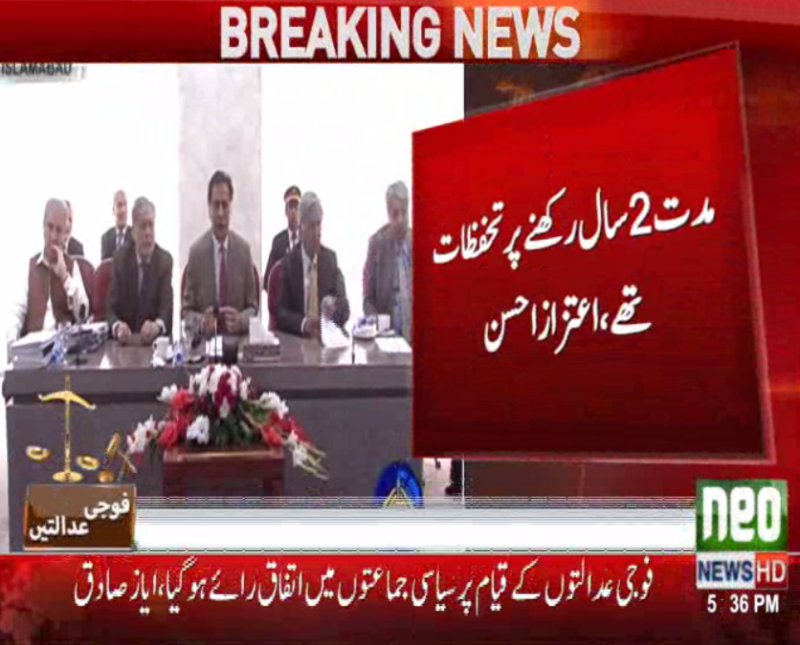Islamabad: Military Courts remained a matter of contention among Pakistan top political parties and unlike others the popular Pakistan Police Party didn’t mince it words and outrightly rejected them. After quiet some discussions and arbitration Parliamentary parties have agreed on a two-year extension for military courts, and an amendment bill will be tabled in the National Assembly tomorrow as reported by Neo News.
National Assembly Speaker Ayaz Sadiq said parliamentary parties had agreed to four out of the nine recommendations of the Pakistan People’s Party (PPP).
“We have reached an agreement on the extension of military courts. The government will table the amendment bill tomorrow in the National Assembly,” said Sadiq.
The PML-N had tabled the 28th Constitutional Amendment Bill and the Army Act Amendment Bill 2017 in the National Assembly last week for input from all political parties but the parliament could not adopt the bills that would have legalised trials before military courts after the PPP rejected them.
"The PPP totally and roundly rejects any statement purportedly issued by any official agency creating a false and erroneous impression of the PPP having agreed to the draft proposals of the government," PPP Senator Farhatullah Babar said in a statement.
Military courts in Pakistan have been accused of fostering human rights abuses and criticised for a lack of transparency and accountability. They had ceased to function after expiry of tenure earlier this year.
Military trials of terrorism suspects were legalised in January 2015 with lawmakers and the military arguing that civilian courts were unable to process cases swiftly because many judges feared becoming victims of revenge attacks.
The courts have since delivered 275 convictions, including 161 death sentences, and carried out 12 executions. These courts do not allow the right to appeal and judges are not required to have law degrees or provide reasons for their verdicts.


